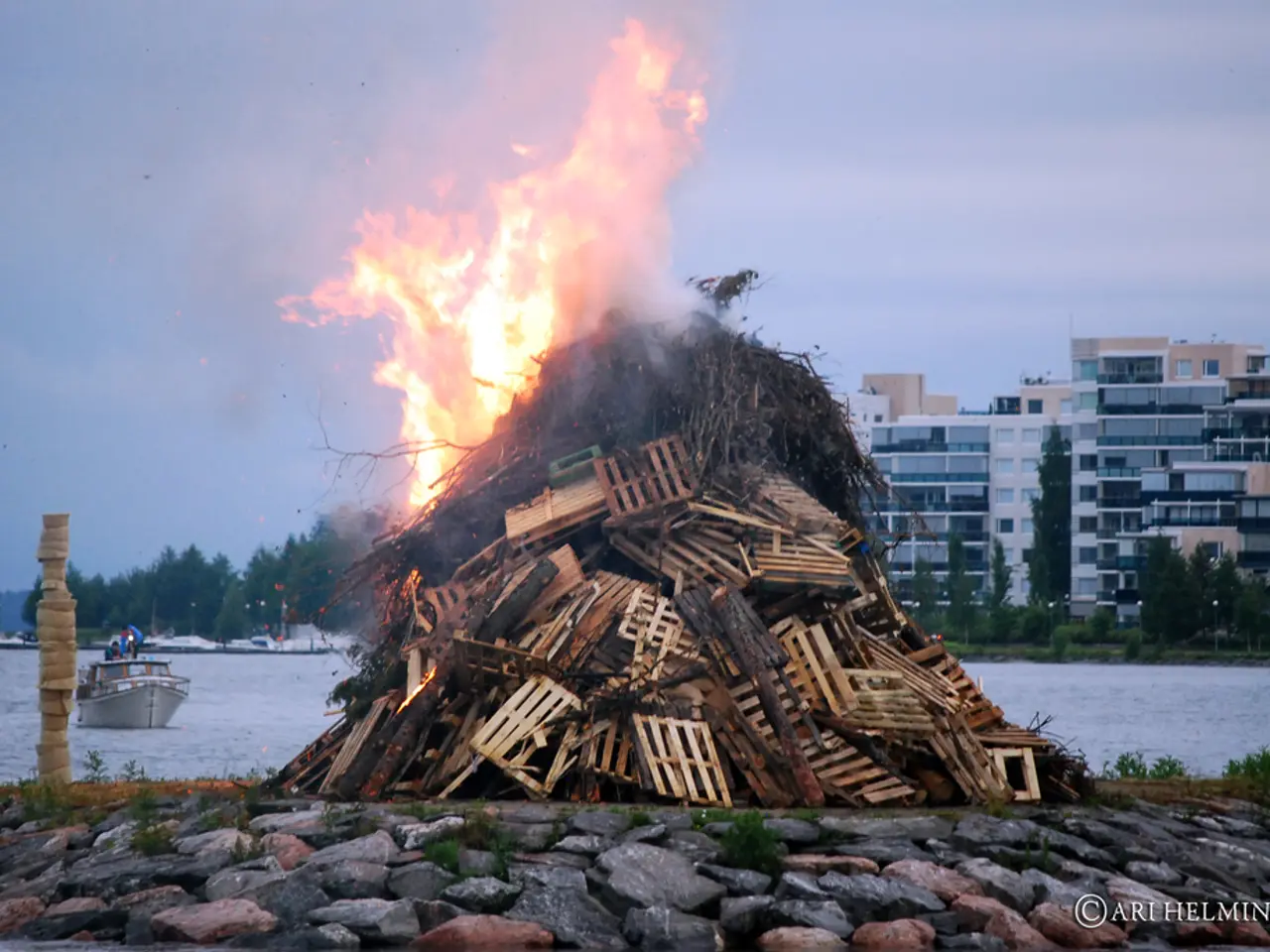Raging wildfires engulf Southern Europe, prompting Spain to plead for EU assistance, while Greece appears to be gradually regaining control.
Wildfires Ravage Southern Europe Amid Persistent Heatwave
The current heatwave sweeping across Southern Europe has significantly intensified wildfires in countries such as Spain, Greece, Portugal, and others, causing widespread destruction, forced evacuations, and fatalities.
This heatwave has brought exceptionally high temperatures, often exceeding 40°C and reaching up to 46°C in Spain and Portugal. The persistent "heat domes" have trapped hot air for extended periods, fueling numerous wildfires that have devastated large areas of land. For instance, in Spain near Zamora, fires have engulfed homes and farmland, leading to fatalities and mass evacuations.
In Greece, regions like the Peloponnese and islands such as Chios and Zakynthos have been heavily affected by flames. Portugal has responded with restrictions on forest access and bans on certain agricultural activities to mitigate fire risks.
Multiple factors aggravated by the heatwave have made the situation worse. Wind speeds over 80 km/h carrying extremely hot air have rapidly spread fires across the Mediterranean region. This heatwave is part of a series of severe events—two prior heatwaves earlier in 2025 had already primed the region for high fire danger.
In Spain, over 99,000 hectares (244,000 acres) of land have been lost to wildfires this year, more than double what was recorded by this time in 2024. Madrid has requested two Canadair water bombers from the European Union to aid in firefighting efforts.
Across the region, the fires are unfolding amid extreme summer heat that scientists attribute to human-induced climate change. In Portugal, nearly 2,000 firefighters are battling four major fires, including one that has razed an estimated 14,000 hectares in the central Trancoso area. Over 10,000 hectares of land have been consumed by fires in Greece, as reported by the EU's Copernicus satellite program.
Crews in Albania continue to battle fires that have destroyed homes, while Montenegro has reported progress due to easing conditions and water-bombing aircraft. In a heartwarming display of unity, a 70-year-old resident named Antonio Silva chose to stay and defend his home during the fires in Portugal.
Tragically, three wildfire deaths have been reported in Spain this week, and a firefighter died battling fires in the northwestern province of Leon. If conditions worsen, Spain may seek additional firefighters from European partners. The fire in Patras, Greece, a major port to Italy, has been contained but scattered hotspots remain on the city's eastern edge.
As the region grapples with these devastating wildfires, the international community stands ready to offer support and resources to help in the recovery efforts.
- As severe weather conditions persist across Europe, the impact of climate change on the environment, particularly in terms of wildfire frequency and intensity, has become a pressing issue in the broader realm of environmental science and general news.
- heightened awareness of the role that politics plays in addressing climate change and mitigating its effects on the environment is emphasized, as cooperation among European countries, illustrated by Spain's request for water bombers from the EU, demonstrates the collaboration needed to combat such devastating events as the current wildfires.
- In light of the ongoing wildfires, the importance of scientific research and monitoring in understanding the link between drought, heatwaves, and their effects on the environment, like the amplified fire risks across Southern Europe, is underscored for the purpose of informing future policies geared toward addressing climate change and promoting sustainable practices in both science and politics.








